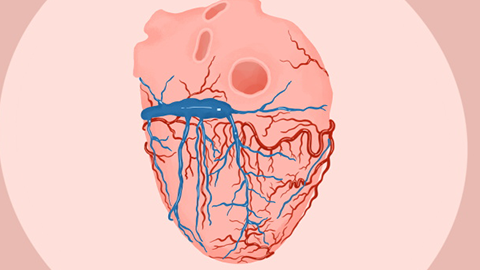How is vasculitis treated?
Generally, vasculitis may be caused by abnormal activation of the immune system, genetic factors, infection-induced triggers, adverse drug reactions, or involvement of autoimmune diseases. It is recommended to seek timely medical consultation, identify the cause, and then improve the condition under a doctor's guidance through general treatment, medication, and other approaches. A detailed analysis is as follows:

1. Abnormal immune system activation: When the body's immune system becomes disordered, it may produce antibodies targeting the blood vessel walls, causing inflammation and manifesting as rashes and joint pain. Patients should avoid allergens, maintain a regular lifestyle, reduce mental stress, and follow medical advice to use medications such as methylprednisolone tablets, prednisolone tablets, and cyclophosphamide tablets to suppress immune reactions and alleviate vascular inflammation.
2. Genetic factors: A family history of vasculitis increases genetic susceptibility and the likelihood of developing the condition, often showing familial clustering. Regular medical checkups are important for early detection and intervention. Patients should avoid infections and excessive fatigue while enhancing immunity to reduce disease risk.
3. Infection-induced triggers: Infections caused by pathogens such as bacteria or viruses can stimulate immune responses that affect blood vessels and cause inflammation, often accompanied by fever and fatigue. Patients should follow medical advice to use medications such as cefixime dispersible tablets, acyclovir tablets, and azithromycin capsules to control the infection. Vasculitis symptoms often improve once the infection is managed.
4. Adverse drug reactions: The use of penicillin or sulfonamide drugs may induce vascular inflammation, presenting as skin redness and itching. Suspected drugs should be discontinued immediately, and similar medications should be avoided in the future. Doctors may recommend antihistamines such as loratadine tablets, cetirizine hydrochloride tablets, and ebastine tablets to relieve symptoms.
5. Involvement of autoimmune diseases: Autoimmune diseases such as systemic lupus erythematosus and rheumatoid arthritis may affect blood vessels and cause inflammation, often accompanied by joint deformities and organ damage. Patients should follow medical advice to use medications such as hydroxychloroquine sulfate tablets, methotrexate tablets, and azathioprine tablets to treat the underlying condition.
Daily care should include maintaining skin hygiene, avoiding scratching affected areas to prevent injury and infection. A bland diet, avoiding spicy and irritating foods, along with regular sleep patterns and moderate exercise to enhance physical health, are recommended. Comprehensive care can promote recovery and maintain vascular health.








